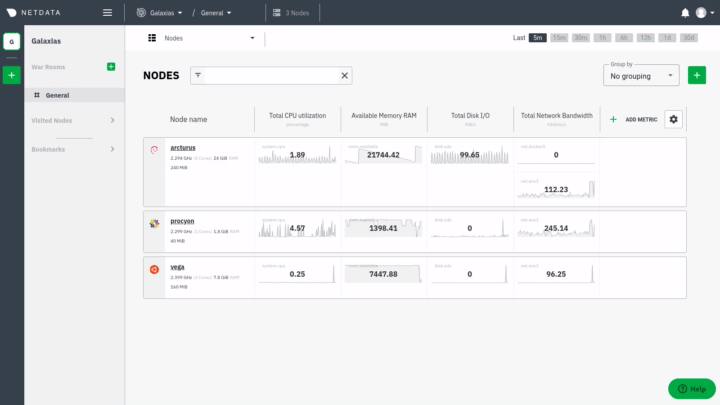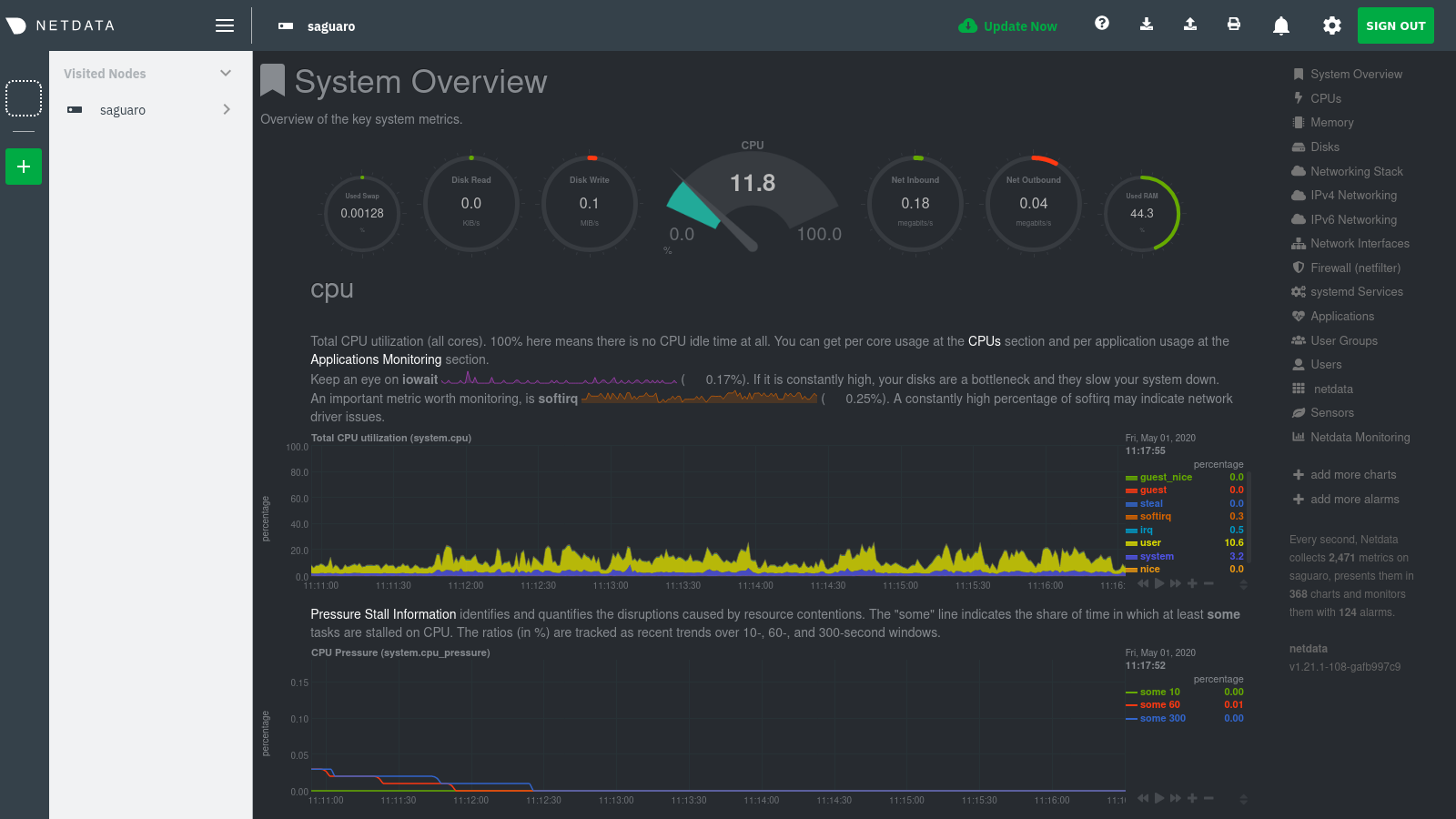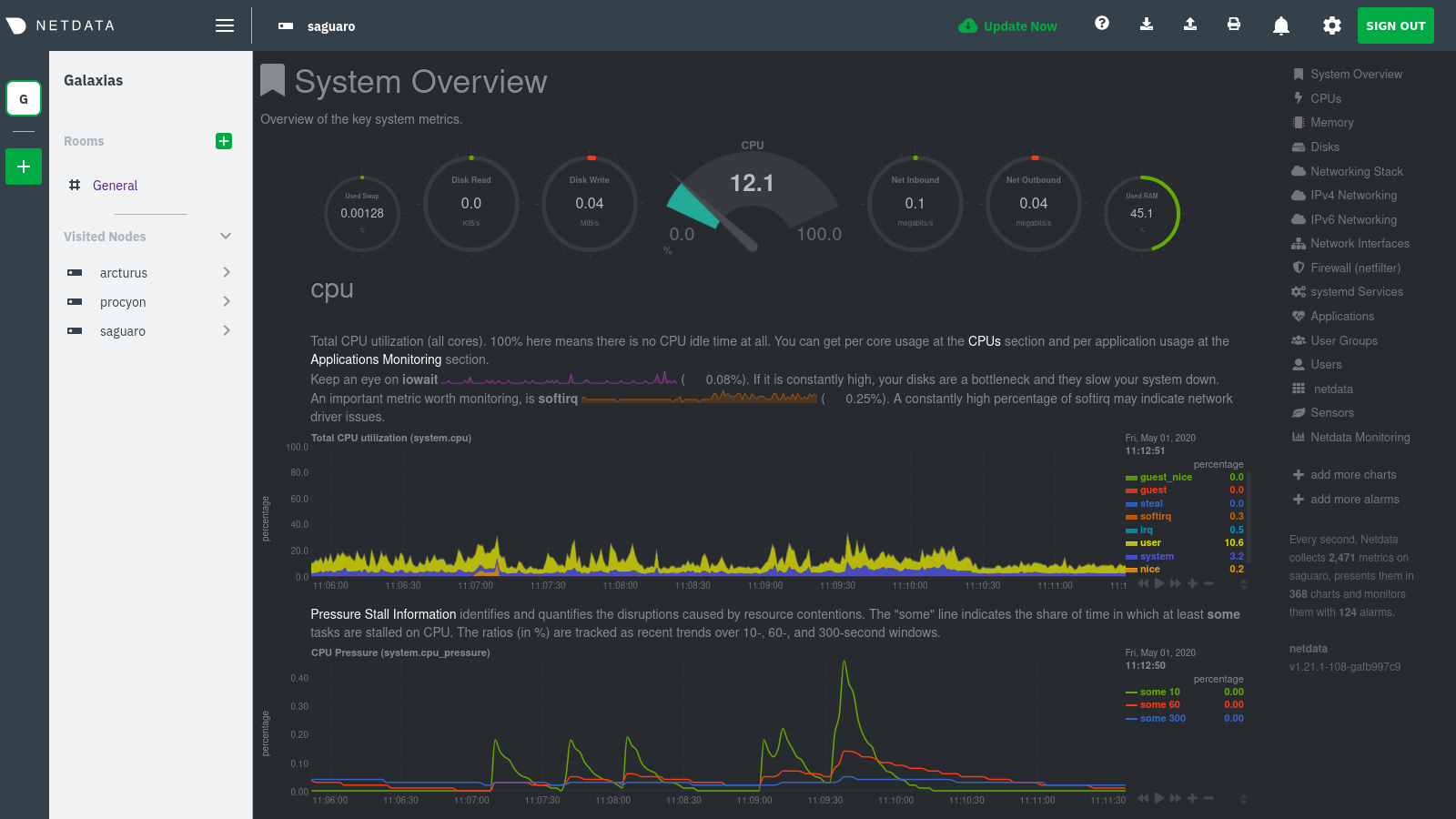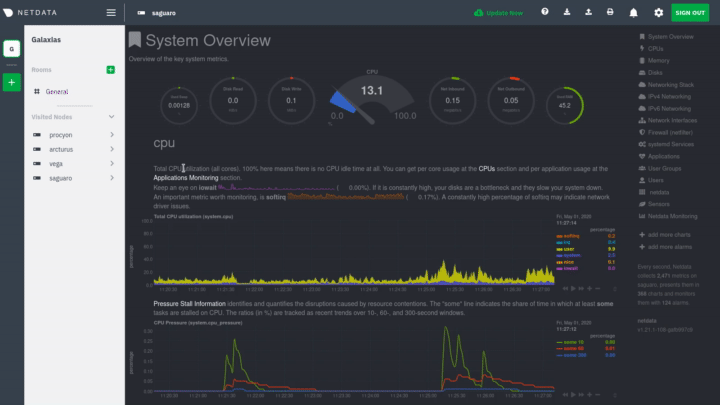diff options
Diffstat (limited to 'docs/guides/step-by-step/step-03.md')
| -rw-r--r-- | docs/guides/step-by-step/step-03.md | 94 |
1 files changed, 0 insertions, 94 deletions
diff --git a/docs/guides/step-by-step/step-03.md b/docs/guides/step-by-step/step-03.md deleted file mode 100644 index 3204765b4..000000000 --- a/docs/guides/step-by-step/step-03.md +++ /dev/null @@ -1,94 +0,0 @@ -<!-- -title: "Step 3. Monitor more than one system with Netdata" -date: 2020-05-01 -custom_edit_url: https://github.com/netdata/netdata/edit/master/docs/guides/step-by-step/step-03.md ---> - -# Step 3. Monitor more than one system with Netdata - -The Netdata agent is _distributed_ by design. That means each agent operates independently from any other, collecting -and creating charts only for the system you installed it on. We made this decision a long time ago to [improve security -and performance](step-01.md). - -You might be thinking, "So, now I have to remember all these IP addresses, and type them into my browser -manually, to move from one system to another? Maybe I should just make a bunch of bookmarks. What's a few more tabs -on top of the hundred I have already?" - -We get it. That's why we built [Netdata Cloud](https://github.com/netdata/netdata/blob/master/docs/cloud/cloud.mdx), which connects many distributed -agents for a seamless experience when monitoring an entire infrastructure of Netdata-monitored nodes. - - - -## What you'll learn in this step - -In this step of the Netdata guide, we'll talk about the following: - -- [Step 3. Monitor more than one system with Netdata](#step-3-monitor-more-than-one-system-with-netdata) - - [What you'll learn in this step](#what-youll-learn-in-this-step) - - [Why use Netdata Cloud?](#why-use-netdata-cloud) - - [Get started with Netdata Cloud](#get-started-with-netdata-cloud) - - [Navigate between dashboards with Visited Nodes](#navigate-between-dashboards-with-visited-nodes) - - [What's next?](#whats-next) - -## Why use Netdata Cloud? - -Our [Cloud documentation](https://github.com/netdata/netdata/blob/master/docs/cloud/cloud.mdx) does a good job (we think!) of explaining why Cloud -gives you a ton of value at no cost: - -> Netdata Cloud gives you real-time visibility for your entire infrastructure. With Netdata Cloud, you can run all your -> distributed Agents in headless mode _and_ access the real-time metrics and insightful charts from their dashboards. -> View key metrics and active alarms at-a-glance, and then seamlessly dive into any of your distributed dashboards -> without leaving Cloud's centralized interface. - -You can add as many nodes and team members as you need, and as our free and open source Agent gets better with more -features, new collectors for more applications, and improved UI, so will Cloud. - -## Get started with Netdata Cloud - -Signing in, onboarding, and connecting your first nodes only takes a few minutes, and we have a [Get started with -Cloud](https://github.com/netdata/netdata/blob/master/docs/cloud/cloud.mdx) guide to help you walk through every step. - -Or, if you're feeling confident, dive right in. - -<p><a href="https://app.netdata.cloud" className="button button--lg">Sign in to Cloud</a></p> - -When you finish that guide, circle back to this step in the guide to learn how to use the Visited Nodes feature on -top of Cloud's centralized web interface. - -## Navigate between dashboards with Visited Nodes - -To add nodes to your visited nodes, you first need to navigate to that node's dashboard, then click the **Sign in** -button at the top of the dashboard. On the screen that appears, which states your node is requesting access to your -Netdata Cloud account, sign in with your preferred method. - -Cloud redirects you back to your node's dashboard, which is now connected to your Netdata Cloud account. You can now see the menu populated by a single visited node. - - - -If you previously went through the Cloud onboarding process to create a Space and War Room, you will also see these -alongside your visited nodes. You can click on your Space or any of your War Rooms to navigate to Netdata Cloud and -continue monitoring your infrastructure from there. - - - -To add other visited nodes, navigate to their dashboard and sign in to Cloud by clicking on the **Sign in** button. This -process connects that node to your Cloud account and further populates the menu. - -Once you've added more than one node, you can use the menu to switch between various dashboards without remembering IP -addresses or hostnames or saving bookmarks for every node you want to monitor. - - - -## What's next? - -Now that you have a Netdata Cloud account with a connected node (or a few!) and can navigate between your dashboards with -Visited nodes, it's time to learn more about how you can configure Netdata to your liking. From there, you'll be able to -customize your Netdata experience to your exact infrastructure and the information you need. - -[Next: The basics of configuring Netdata →](step-04.md) - - |
